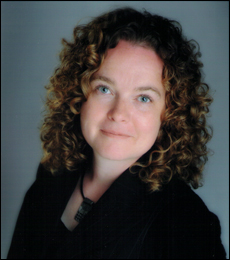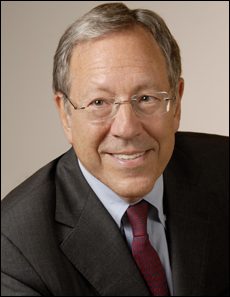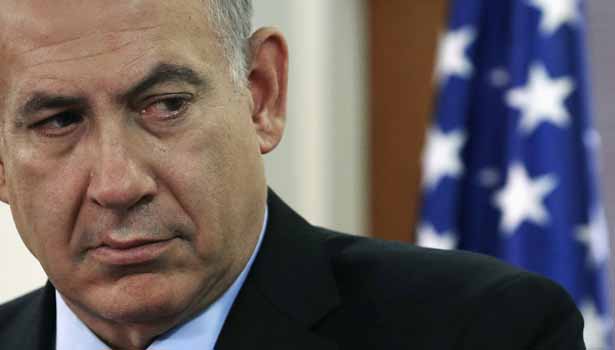
|
http://www.winnipegjewishreview.com/article_detail.cfm?id=425&sec=1
The signatories of this letter participated in a conference on “Global Antisemitism, a Crisis of Modernity” that was held at Yale University from August 23 to the 25th, 2010, and organized by the Yale Initiative for the Interdisciplinary Study of Antisemitsm (YIISA). First, we write to express our appreciation to Yale University for hosting this important gathering and for fostering a scholarly engagement on an issue that has been widely discussed outside the academy. Yale, and in particular its historians, played a leading role in the scholarly examination of the role of white racism in American history. So it is fitting and very much in the traditions of a great university that it now offers a home to YIISA and thus strengthens the scholarly examination of antisemitism in its historical and contemporary manifestations. YIISA founded in 2006 is, remarkably, the first research center based at a university in North America with a focus on antisemitism.
It is not surprising that a conference on contemporary antisemitism brought people together who find this prejudice abhorrent and want to draw attention to it. Yet within this broad agreement, we benefitted from the interdisciplinary nature of YIISA and from the contributions of historians, political scientists, literary scholars, theologians, legal scholars and experts on mass media. In all 108 papers were presented by participants from eighteen different countries from the continents and regions of Africa, Europe, the Middle East, South and North America. Hence the conference participants presented a truly “global” scholarly perspective on the issue of contemporary antisemitism. Indeed, as far as we know, the conference was the largest academic gathering devoted to the issue ever. Moreover, the planning of the conference went hand-in-hand with the establishment of an International Association for the Study of Antisemitism (IASA), a professional organization that will benefit from cooperation of six other research centers focused on antisemitism in South Africa, Canada, Europe, Israel as well as the United States. The Founder and Director of YIISA, Dr. Charles Small, was unanimously appointed by his peers as the first President of the IASA.
Since World War II and the Holocaust (Shoah), there has been what historians have called a shift of gravity in the location and inspiration of hatred of Judaism and the Jewish people. While Jew-hatred rooted in Christian and more secular fascist and neo-Nazi currents has not disappeared, a virulent form has emerged in recent decades from Islamist extremism, especially in the Middle East and Iran. Therefore, a conference devoted to examining antisemitism would be remiss were it not to include in its focus analysis of this cultural shift, and to strive to understand its nature, origins and other characteristics.
Anyone who has read the now large body of scholarly literature on the topic knows that it makes the same distinctions between antisemitism rooted in Islamist ideologies, on the one hand, and the general political culture of the Arab Middle East or Iran, on the other, as historians previously made between radical antisemites in Europe and European and Christian culture in general. The relative significance of antisemitism in the history of Europe, the United States and of the religion of Christianity has been a key question for modern scholarship. The same is now the case regarding the significance of Jew-hatred in the history of aspects of Islam and Arab and Iranian politics. The clear distinction between the religion of Islam, in general, and the specific 20th and 21st century tradition known as “Islamism” that in various forms has inspired terrorism and antisemitism was a theme of a number of presentations at the conference.
It has come to our attention that, despite its manifest virtues and successes, the YIISA conference has been erroneously described in the Yale Daily News, by politicians and a contingent of motivated bloggers, none of whom attended the conference or read a single paper, as providing a platform for “anti-Arab and anti-Muslim speakers”. Therefore, as speakers at this conference, and as listeners to the panels, lectures and discussions that were part of this conference, we write to assert that these accusations are false, and that the conference was keeping with the scholarly mission of a great research university.
It is important to remember that from the end of the Civil War until the 1950s, with some exceptions, the majority of the American historical profession failed to write truthfully about the realities of white racism during slavery and the long era of segregation. Yale’s historians played a major role in bringing that unfortunate era of neglect to an end. Today, the question that confronts scholars who work on antisemitism is whether the academy they will follow the abysmal model offered by their predecessors in the American historical profession or whether they will undertake the difficult task of examining antisemitism in this context.
We understand well that efforts to examine prejudice and the hatred it fosters against the Jewish people have been and will be attacked in this manner for political reasons. In fact, calling scholars who work on this issue racists and Islamophobes is a grotesque reversal of the facts. The purpose of those who attack scholars who study antisemitism is to suppress scholarly research on these important matters, offer legitimacy to Jew-hatred and, in this case, to change the subject at Yale so that administrators, faculty and students who could not attend the sessions will not know what took place in them. In this letter, we cannot reproduce the substance of the conference. Suffice it to say that there were many serious scholars who presented important research that made precisely the same kind of distinctions that scholars always make when attempting to trace the history and nature of varieties of hatred and racism. The tragic and infuriating fact is that there is much evidence that a great deal of contemporary antisemitism inspired by Islamism has appeared in recent years in printed books, on internet websites, in newspaper columns and on widely watched television stations in Iran and in the Middle East. When scholars at the conference drew attention to these facts they repeatedly made clear that they were not doing so in order to make generalizations about all Arabs, Iranians and certainly not about Islam in general. They were bringing attention to unpleasant facts.
We know that many, perhaps most, of our fellow scholars have had the experience of publishing findings about important issues that infuriate some. Seeking the truth is often difficult and can offend some who would prefer that the facts remain unexamined. We are confident that YIISA’s recent conference is in a very great and noble tradition of seeking the truth about important and difficult matters. Fostering this kind of scholarship, discussion and debate is one reason that universities exist. In this sense, Yale University can and should take pride in the work of its research center, YIISA. In years to come, many people will look back on these events and note that scholars affiliated with Yale were pioneers in the scholarly examination of antisemitism just as they were fifty years ago when they played a decisive role in the scholarly examination of white racism in American history. Then and now, both endeavors had and have adversaries. Then and now, scholars were not and will not be intimidated by false and politically driven accusations. Then scholars at Yale were on the right side of a crucial moral issue. Now, the same is true due to Yale University’s creaton of the first center of its kind in a North American university, YIISA.
Sincerely,
Doron Ben-Atar
Professor of History
Fordham University
Catherine Chatterley
Director, Canadian Institute for the Study of Antisemitism (CISA)
Fellow, History, University of Manitoba
Rabbi Abraham Cooper
Associate Dean
Simon Wiesenthal Center
Hon. Irwin Cotler, P.C., O.C.,/C.P., O.C.
Member of Canadian Parliament
Former Minister of Justice and Attorney General of Canada
Professor of Human Rights Law, McGill University
Nora Gold
Professor, Center for Women’s Studies
Ontario Institute for Studies in Education
University of Toronto
Daniel Goldhagen
Independent Scholar
Boston, MA
Jeffery Herf
Professor, Department of History
University of Maryland, College Park
Barry Kosmin
Professor, Public Policy & Law Program
Trinity College
Deborah Lipstadt
Dorot Professor of Modern Jewish & Holocaust Studies
Emory University
Meir Litvak
Professor, Department of Middle Eastern History
Director, Center for Iranian Studies
Senior Fellow, Dayan Center for Middle Eastern & African Studies
Tel Aviv University
Kenneth Marcus
Director, Initiative on Anti-Semitism & Anti-Israelism for Jewish Community Research
Lillie & Nathan Ackerman Chair, Equality & Justice in America, CUNY
Baruch College School of Public Affairs
Dina Porat
Professor of History, Director, Stephen Roth Institute for the Study of Contemporary Antisemitism and Racism, Tel Aviv University
Walter Reich
Yitzhak Rabin Memorial Professor of International Affairs
Ethics and Human Behavior
Professor of Psychiatry and Behavioral Sciences
George Washington University
Alvin Rosenfeld
Director, Institute for the Study of Contemporary Antisemitism
Irving M. Glazer Chair, Jewish Studies
Professor, English and Jewish Studies, Indiana University
Milton Shain
Professor, Department of Historical Studies
Director, Isaac and Jessie Kaplan Centre for Jewish Studies and Research
University of Cape Town
Bassam Tibi
Professor Emeritus of International Relations
University of Goettingen
Daniel Tsadik
Assistant Professor of Iranian and Sephardic Studies
Yeshiva University
Ruth Wisse
Martin Peretz Professor of Yiddish Literature
Professor of Comparative Literature
Harvard University









